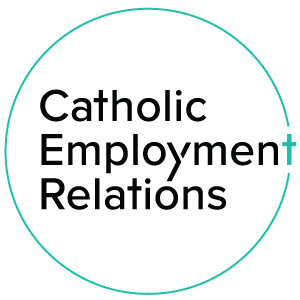Managing psychosocial hazards in the workplace
The recent changes and what it means for your organisation.
The recent amendment made to the Work Health and Safety Regulation 2017 (NSW) (‘the Regulations’) by the Work Health and Safety Amendment Regulation 2022 (NSW) imposes an explicit obligation on persons conducting a business or undertaking (PCBUs) to manage and control psychosocial risks in the workplace, from 1 October 2022.
1. What are psychosocial hazards:
Section 55A of the Regulations defines psychosocial hazards, as hazards that –
a) arise from, or relate to :
i) the design or management of work, or
ii) a work environment, or
iii) a plant at a workplace, or
iv) workplace interactions or behaviours, and
b) may cause psychological harm, whether or not it may also cause physical harm.
2. SafeWork Australia has identified the following common psychosocial hazards at work:
remote or isolated work
poor physical environment
violence and aggression
bullying
harassment, including sexual harassment
conflict or poor workplace relationships and interactions
traumatic events or material
job demands
low job control
poor support
lack of role clarity
poor organisational change management
inadequate reward and recognition
poor organisational justice
3. A positive duty on PCBUs:
The amendment to the Regulations imposes a positive duty on PCBUs, to manage psychosocial risks in the same way as other risks to health and safety in the workplace (ie physical risks), and to implement control measures. Importantly, PCBUs are now legally obligated to turn their minds to addressing mental health in the workplace. The recent changes may result in NSW employers being faced with criminal prosecutions for failing to adequately protect employees’ mental health.
4. What your organisation needs to do:
The critical changes require employers to:
Identify the psychosocial hazard (s) – Employers have a duty to identify reasonably foreseeable hazards that could potentially harm workers or others in the course of conducting the business or undertaking, including psychosocial hazards.
Assess the risks and determine
what control measures to implement, having regard to all relevant matters, including:
the level of exposure of workers and others to the psychosocial hazards;
how the psychosocial hazards may interact or combine;
the design and systems of work, including job demands and management of work;
the design and layout, and environmental conditions of the workplace;
plant, substances and structures at the workplace
workplace interactions or behaviours; and
the information, training, instruction and supervision provided to workers.
Eliminate (or reduce if elimination is not reasonably practicable, ) any risks associated with any psychosocial hazards;
Review (and revise as necessary) risk control measures implemented to control any psychosocial hazards;
A failure to address such requirements may result in a breach of a PCBU’s duty. This may result in penalties being imposed on both the PCBU and its officers, including criminal sanctions.
5. Key takeaways and impact of the changes:
All PCBUs that operate within NSW, should act now to ensure that they have identified all psychological hazards in all aspects of their organisation and undertakings in NSW. This will most likely involve:
Arranging for robust risk assessments to be conducted (or have pre-existing risk assessments reviewed);
Ensuring that reasonably practicable control measures are identified;
Ensuring that the necessary policies and procedures are in place and that employees have been adequately instructed in relation to their application;
Ensure that adequate information, training, instruction and supervision are provided to workers;
Considering any reportable psychosocial complaints that have been made;
Preparing to regularly review and assess psychosocial hazards in the workplace and implement any control measures on a continual basis;
Consulting with employees in respect of identified risks and proposed control measures (in the event that such consultation has not already occurred);
Build and adopt an effective risk management process to manage those risks. The impact of the changes in NSW, is likely to result in organisations in other States and Territories wanting to take a more proactive approach in relation to psychosocial risk management, in order to ‘get ahead of the game’. Queensland have also announced their commitment to adopt the same regulations on 1 April 2023. While the Victorian Government are currently reviewing submissions received in response to the consultation, regarding the proposed Regulations.
6. Some of the current issues that are faced in relation to managing psychosocial hazards in the workplace are the following:
Keeping up to date with legislative changes.
Management, Health, Safety and Environment (HSE) and HR professionals not being experienced in detecting psychosocial hazards and risks, implementing psychosocial risk management and not understanding their legal and moral obligations that flow.
The general workforce being unaware of what psychosocial hazards and risks are.
Organisations not being aware of the legislative changes or requirements in this space.
A disconnect between the approaches taken by Organisational Psychologists, internal HR and traditional HSE professionals.
A lack of adequate implementation of necessary policies and procedures in this space.
A lack of leadership commitment and support.
Lack of planning prior to implementing a psychosocial risk assessment (including lack of mental health literacy, lack of communication with the workforce and failure to gain buy-in from the workforce).
Lack of understanding in relation to the best tools to use in Psychosocial Risk Assessments.
There may be limited implementation of recommendations due to a lack of: understanding of the hazards, financial resources, time, buy-in and/or lack of understanding of their duties and obligations.
Significant behavioural issues that are common across workplaces such as bullying, harassment and sexual harassment, which result in a high risk of psychological injury for victims and can result in employee-initiated legal claims.
7. We provide the following links to useful tools and resources that will assist your organisation with the Psychosocial Risk Management process:
Code of Practice: Managing psychosocial hazards at work | SafeWork NSW
Model Code of Practice: Managing psychosocial hazards at work | Safe Work Australia
Copenhagen Psychosocial Questionnaire and Guidelines - COPSOQ III
8. How can CER help you and your organisation:
We all know that enabling positive psychological health and safety in your organisation has a myriad of benefits for both the organisation and the workforce. Let us help you achieve that goal. With our extensive backgrounds in Law, Human Resources, Industrial Relations, Employment Relations, Work Health and Safety Prosecutions and Psychological Health and Safety in the Workplace, we can assist you by:
Navigating the proposed legal changes and guidance from the relevant Codes of Practice and examining how they affect your organisation;
Assist with the planning phase prior to the psychosocial risk assessments being conducted, including getting your workforce ready for survey and guiding you through the consultation process;
We can help guide you and assist you through the process;
We provide webinars on varying topics throughout the year in order to educate your organisation.
Providing you with helpful tools, templates and resources;
We can assist you with updating and reviewing existing or new policies and procedures. We can also provide you with useful resources and tools to assist you along the way.
Assist you with any HR, ER, IR, WHS and/or legal matters that may arise in relation to the management of psychosocial hazards in your workplace.
More Information?
If you would like to learn more about your obligations, need support or help with enabling positive psychological health and safety in your workplace or need further advice or assistance, please do not hesitate to contact our friendly team via our website at www.cer.catholic.org.au, via email enquiry@cer.catholic.org.au or contact us on (02) 9189 5999.
Disclaimer
The content of this article is intended to provide a general guide to the subject matter. Specialist advice should be sought in relation to your specific circumstances. CER is not responsible for the accuracy of the contents of third-party websites and provides links to such websites for informal purposes only.

